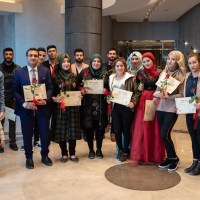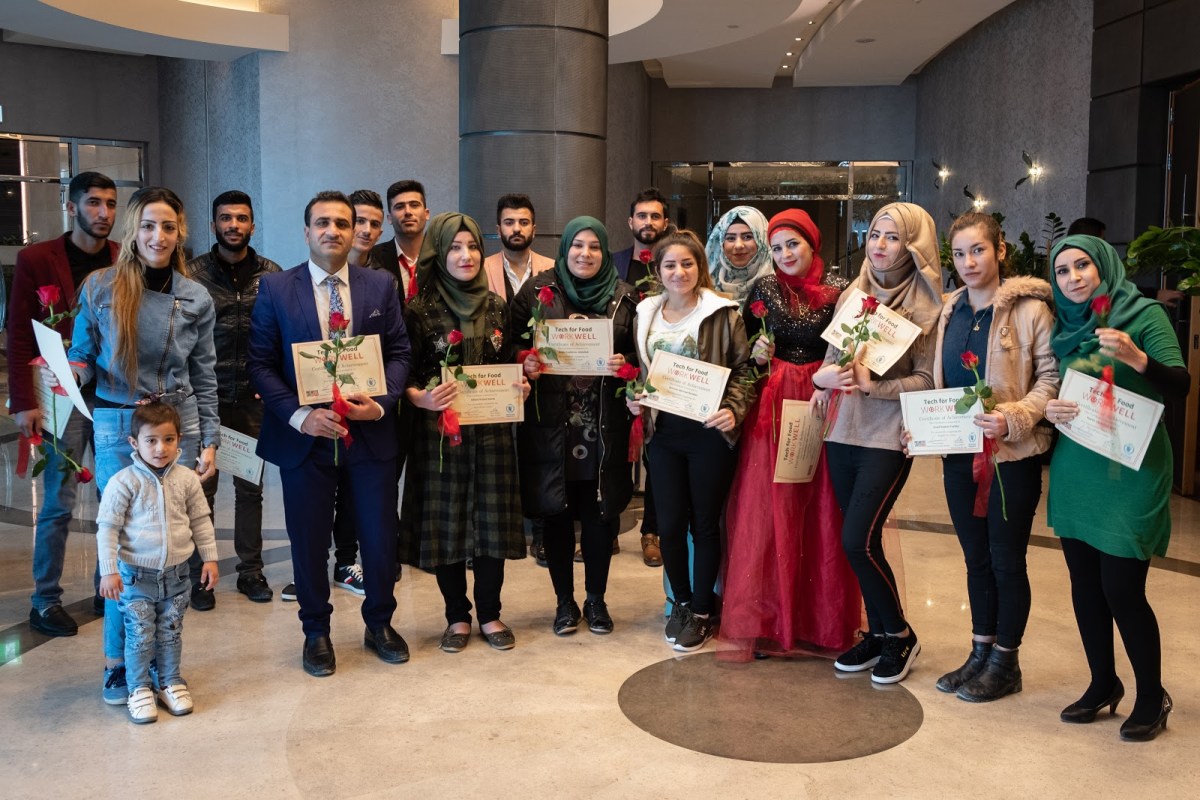“Have two months flown that fast? Wow! It seems like yesterday.”
Last week, Reem (pictured below), a young woman from the former ISIS stronghold of Mosul, stood behind a podium and delivered her graduation speech. She represented her whole class of graduating IT students.
But really she represented so much more.
“When I applied for WorkWell, I thought that it would be a good chance for me to practice and improve my English and IT skills. Here I am today, delivering a speech in English. So you can imagine that I did much more than practice.”
Here in a city where ISIS tried to stop women from being seen, much less heard.
Described by those who know her best, Reem is a dreamer, a hope-searcher, and a believer.
She embodies the opportunity for young adults in Iraq to break away from the old-school model of rote learning for last century’s job opportunities. She and her classmates have a chance to leapfrog into the world of technology and borderless work opportunities.
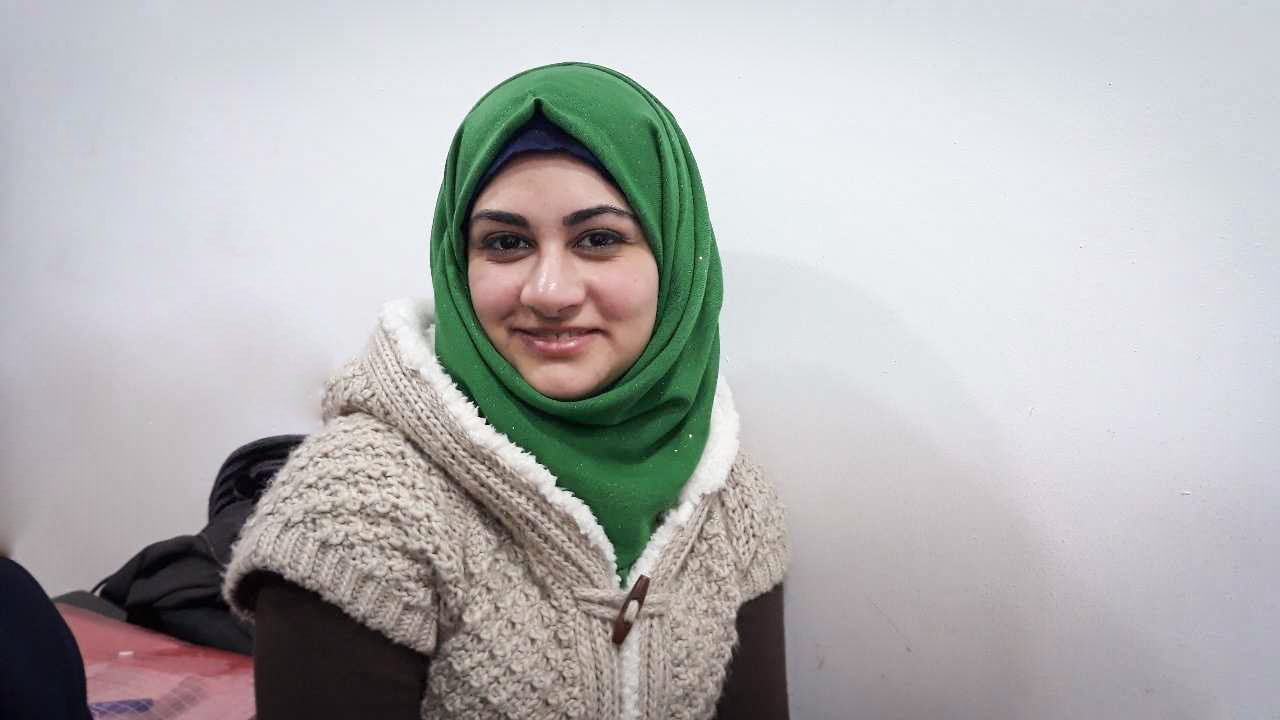
“No more repeating after the teacher and memorizing everything so we can pass the exam,” she says. “But to actually be able to practice what I’ve learned every day in class—whether English or IT. I learned so many things and developed my skills in both. In such a short time I was able to develop myself to a great extent, simply because I loved how I was learning.”
When you support WorkWell—four campuses (and growing!) across Iraq—you invest in lessons, activities and relationships that build confidence and lead directly to jobs for displaced and vulnerable students like Reem.
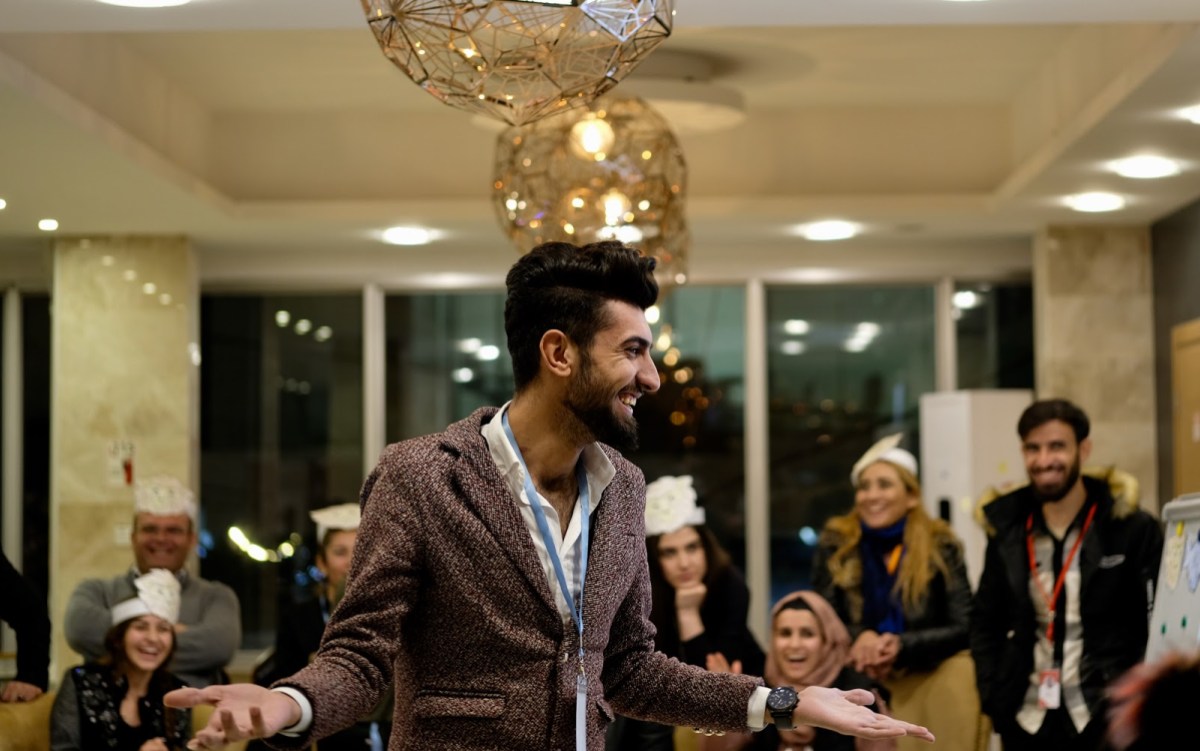
Fast-tracking the future
It can take refugees up to 20 years after resettling in a new country to achieve the same rate of employment as native-born residents, according to the European Commission.
And in the first five years after arrival, only one in four refugees is has a job.
We opened our first WorkWell campus a year ago, followed by three more in cities across northern Iraq that were heavily impacted by ISIS, either directly—like Mosul—or indirectly, with hundreds of thousands of displaced families who overwhelmed the abilities of local government to provide.
In order to help Iraqis and Syrians displaced by war—to help them remake home and provide for their families again—we have to listen to their needs, and then try bold solutions.
Like delivering a whole new way to create jobs
This year we delivered 1,980 hours of training in basic IT, 3,120 hours of training in advanced IT, as well English, online accounting, and basic web design. Students learned how to present to groups, craft a compelling resume, answer job interview questions clearly, and work both as part of a team and as an independent freelancer.
A number of our accounting students have already completed their QuickBooks certification allowing them find work in digital bookkeeping—still in its infancy here in Iraq. A few students have been able to leverage what they learned at WorkWell into full scholarships for the IT program at a local university.
One of the accounting students has no internet at home. When the weekend comes, she buys a data plan so she can continue work. She was scared of accounting class at the beginning, and was about to quit. I remember when she said ‘I don’t understand simple business in Arabic. How am I going to learn it in English?’ Now she is the best in the class.
–Dr. Ehsan Ali, teacher at WorkWell Mosul
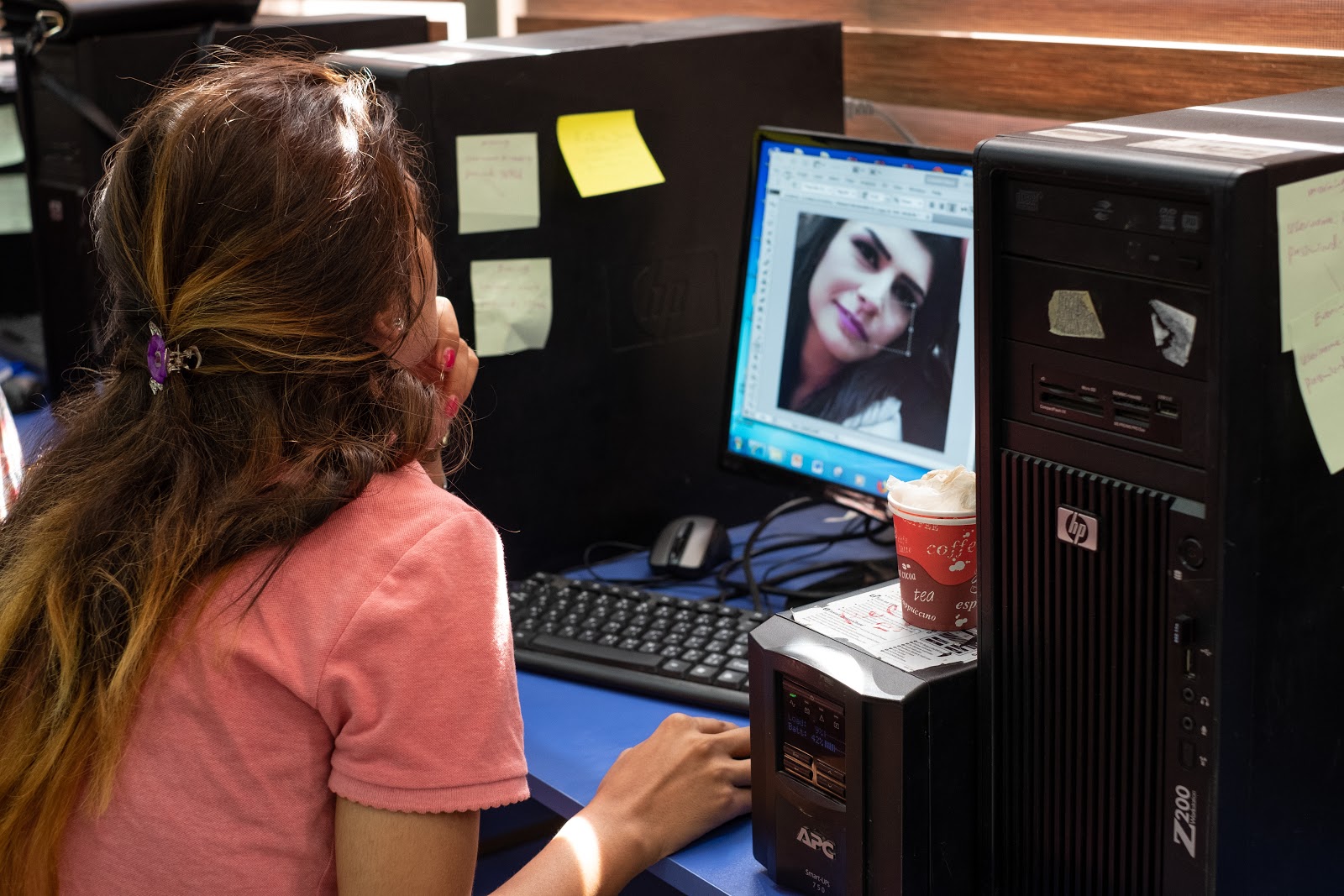
“We Are Your Village.”
WorkWell fosters community for those who have lost lifelong connections to war.
In Middle Eastern culture, family is central, and often directly related to finding a good house to live in, a good partner to marry, and a good job to support your family. The loss of family and your wider community is catastrophic.
“Five years ago I [lost] my girls. Before my job in WorkWell, I didn’t have a family.
[Now] I have a big family. Everyone here is my brother… We have two days off every week. I don’t like these two days because I have to wait 48 hours to see my family.”
—Atheer, WorkWell student (paraphrased graduation speech)
WorkWell students find supportive teams around them, teachers and managers, who care for their whole selves and their futures. They find mentors who are for them.
“They say it takes a village,” one campus manager said at a recent graduation. “We will be your village.”
In Mosul, Iraq, ISIS no longer officially holds territory, but the city is still dangerous in many ways–especially after dark. As the season changes from autumn to winter, and the days become shorter, it is fully dark by the time students in afternoon classes begin the long trip home through broken city streets and countless checkpoints.
So our WorkWell Mosul team made the decision to start all classes earlier, so everything was wrapped by 4pm—before dark. It was a small but significant change that showed students how much they matter.
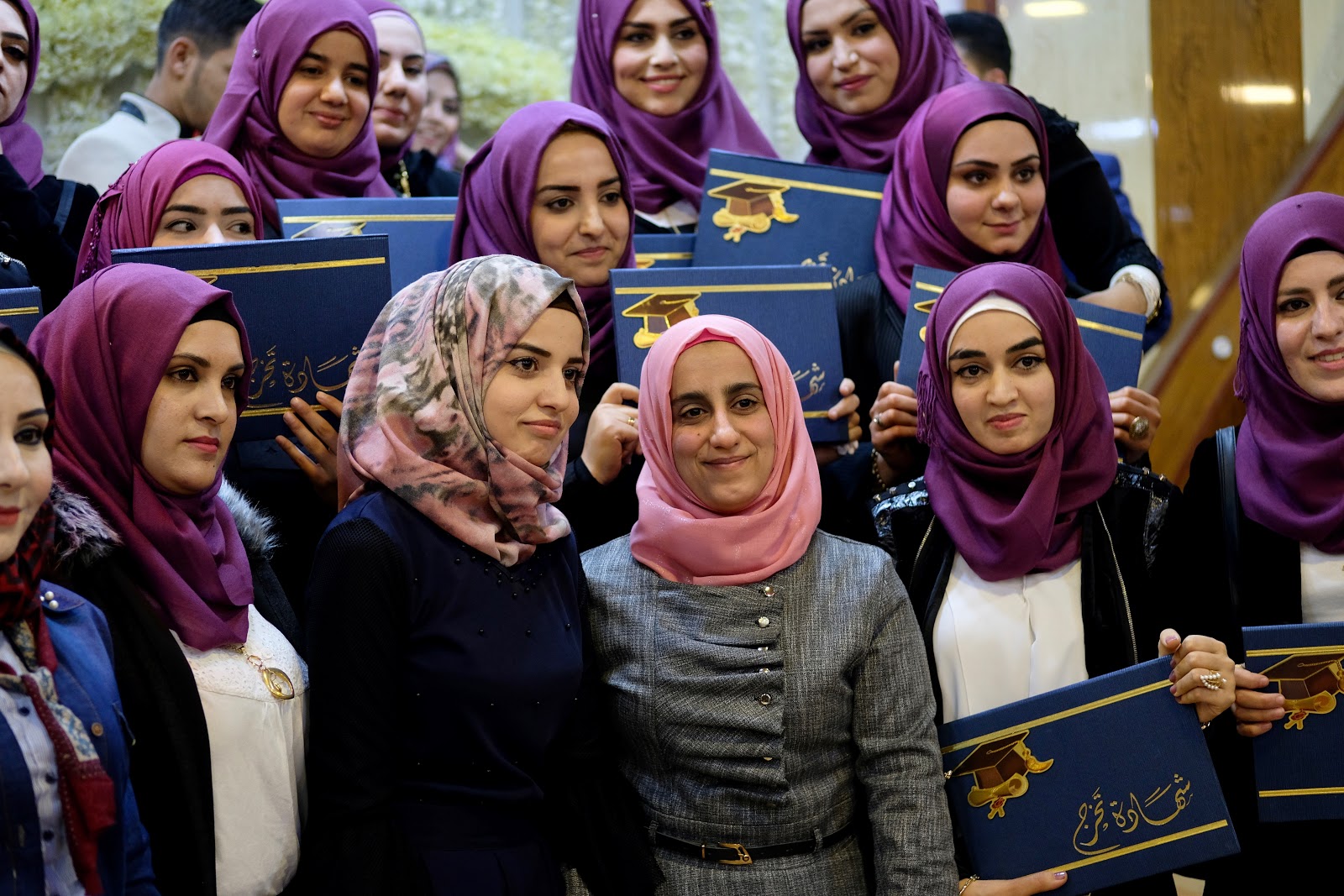
Building peace
Everything revolves around trust in Syria and Iraq. You rely on who you know (and who knows you) for your sense of wellbeing in the world, and for so many practical elements of life. Life in many parts of Iraq and Syria is still difficult—these aren’t places where you can make it on your own.
All of us have become friends… regardless of someone’s religion, age, gender, or nationality. You know we were a mixture of Kurds, Arabs, Yazidis, Muslims, Christians, etc.
If we have many more projects like this in Iraq, I bet everyone will learn to accept one another, despite their religious or educational backgrounds. And it will create [a] peaceful environment.
—WorkWell student, Duhok campus
And just like in North America, there is often a built-in mistrust of those you don’t know, those not in your circle. This mistrust makes it easy for hate groups to sow seeds of doubt about each other. That is how ISIS was able to create such strong footholds in Iraq and Syria.
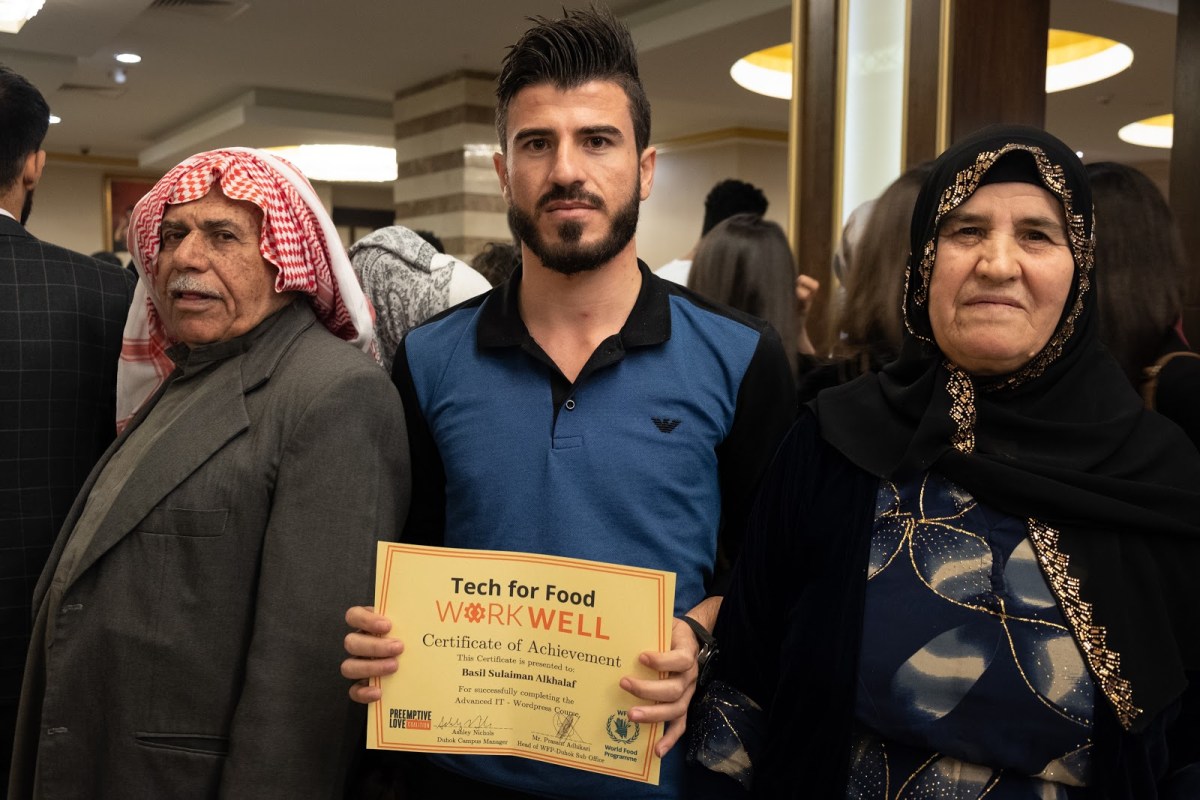
Our whole student body, across four campuses, is made up of strangers from a wide range of ethnicities and faiths. Unlike grade school, high school or even college, the other students in class aren’t neighbors. More than half of them are refugees from Syria, more than a quarter are displaced from their Iraqi hometowns. Another a quarter of our students are from the local community—they are the only students with a deep-seated sense of who is safe.
WorkWell sets out to build trust from the first interaction with students.
They get opportunities to trust our staff, and to trust each other. And the effort is paying off. In a survey taken at the end of this year, 94% of our graduates reported that WorkWell improved their ability to trust people who are different than them.
One of our English instructors recently shared a small book about Martin Luther King Jr. During class, a student used it as part of a presentation and sparked a discussion on racism. We talked about the big systems we can’t control and what we do on a personal level to combat racism and sectarianism in our communities and families, with the hope that such acceptance and equality can spread throughout our cities, governments and countries.
One student said he wants to raise his son and daughter as equals to each other. Another said racism could be fought through spreading forgiveness in person and on social media, and to spread the understanding that one person does not represent a whole community.
—Ashley, WorkWell Duhok campus manager
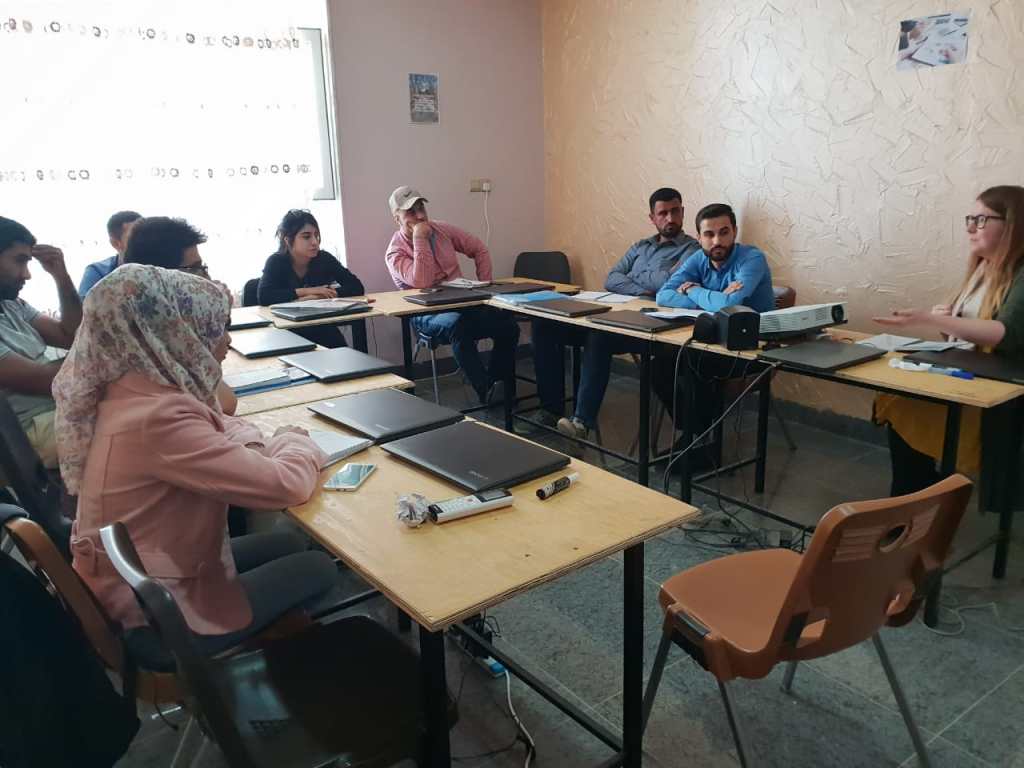
Jobs
Jobs. This is where the rubber meets the road for our students. WorkWell is not just another training program. Quite frankly, Iraq doesn’t need more traditional training programs that provide skills but no roadmap to jobs. Vulnerable Iraqis and Syrians need sustainable work to feed their families now.
During his advanced web design class, Mohammed practiced the CorelDRAW app, a vector graphics editor. After mastering the software, Mohammed received a position working as a furniture designer. He will start his new job this week.
—Jena Borel, WorkWell Program Manager
The unemployment rate for Iraqi adults is 14%. The current rate in the United States, where politics is often driven by the sting of unemployment, is 4%. Of those who do work in Iraq, fully half work in the public sector. For so many years, that was seen as the best kind of job to have. You might not like the work, the pay might be low, and during times of crisis like the last four years you might work for no pay at all—but it was a steady gig.
A gig not open to the displaced and refugees, however.
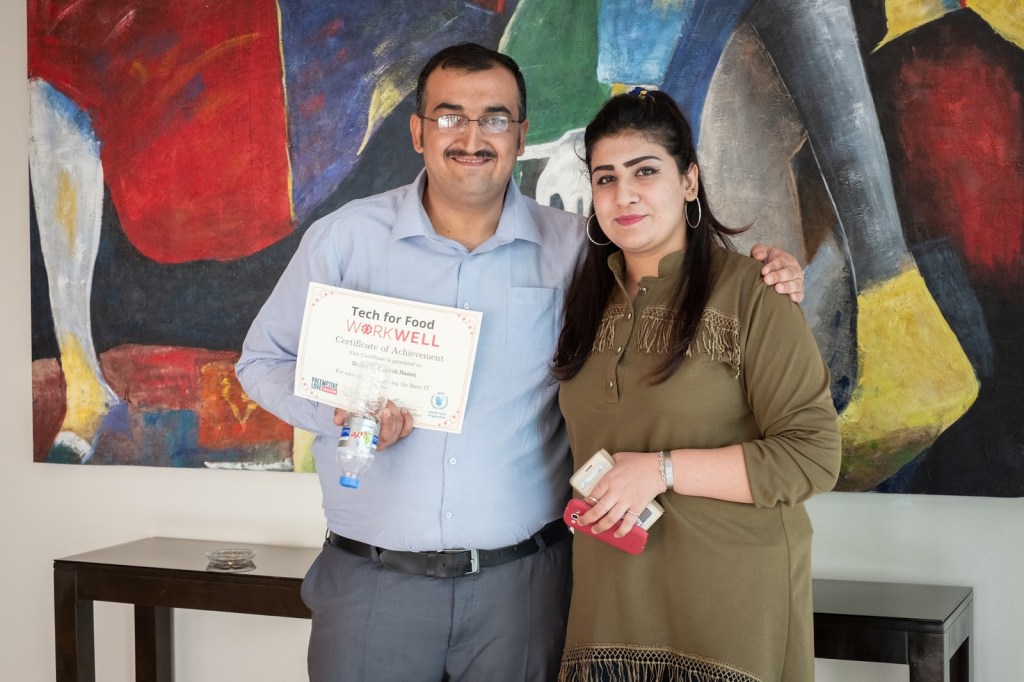
WorkWell cracked open a new way of work for nearly a thousand young adults this year. Those with computer skills, the internet, smartphones, and freelance skills have the ability to work in new ways.
In the local employment market, still sluggish from the impacts of war and decades-old sanctions, one in three WorkWell graduates are currently employed. Of those who aren’t, nearly half have returned to school. Nearly one in five WorkWell graduates who are working earn higher than average incomes—in fact, some are making more than government employees with 20 years of experience.
In Iraq, only 16% of households own a personal computer. Yet four in five own smartphones. To access the international work market, we offer microwork opportunities with international companies which specialize in machine learning. This work requires the ability to move at a quick pace, with focus, accuracy… and just a smartphone.
By the end of this year, on average, our microwork students were earning 60% more, month over month.
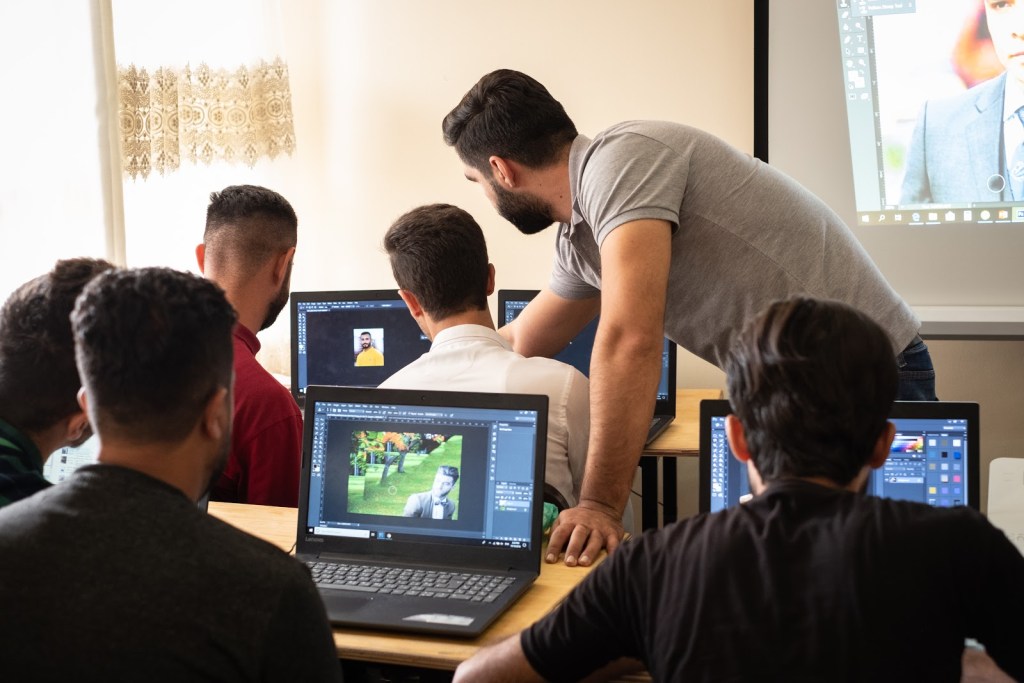
Invest in Success
At the beginning of each term, we hold an assembly. We ask students to raise their hands if they’ve previously been in a training course somewhere else. In every assembly, the majority of students raise their hands.
Next, we ask how many of those training courses led to jobs. Few hands go up this time.
WorkWell is different. And effective. Almost every WorkWell student—98% of them—would recommend the program to a friend.
It is a definite win for the WorkWell program… when a student talks about how WorkWell has changed her life—how it gave her strength, confidence, courage, and the determination to stand on her feet again after being defeated by life. To fight for her dream again… with tears rolling down her face. Her tears of gratitude are enough to keep us going.
–Ms. Aveen, English Instructor, WorkWell Duhok
Reem, the young woman you met at the beginning of this post, said this at the conclusion of her graduation speech:
“I had the chance to meet great people, my dear colleagues, people with different personalities and who view life differently. They actually changed how I see the world and the situation in Mosul. They taught me that there is hope and success will always find a way for those who seek it.”
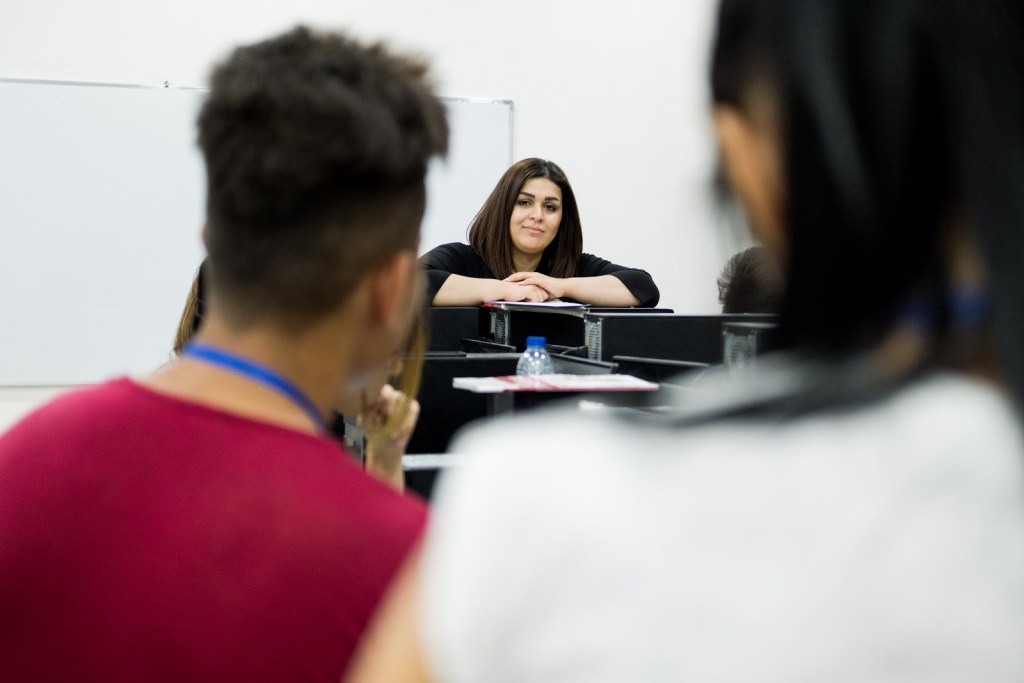
Your investment in WorkWell tech hubs will have far-reaching impacts—from building community and peace, to essential jobs that allow young Iraqis and Syrians who were vulnerable to provide for their families. What is happening on our campuses is exciting. And you can be part of helping us bring WorkWell to even more communities across Iraq and Syria.
Give today.

